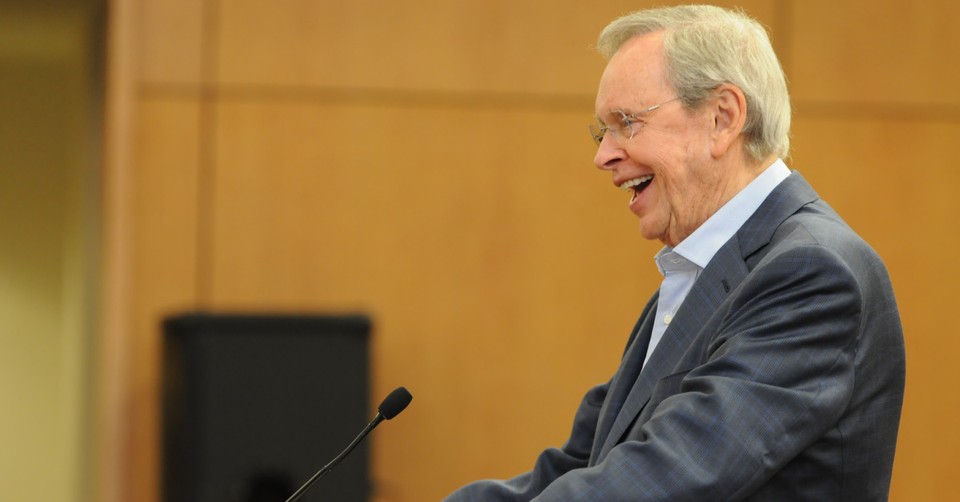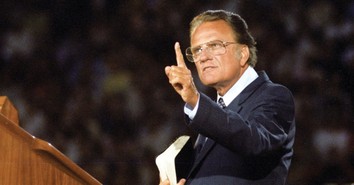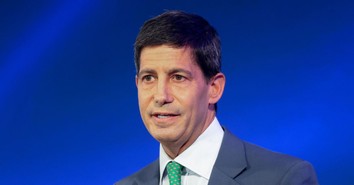Charles Stanley Remembered as Champion of the Bible: He Made it ‘Accessible to Everyday Believers’

Charles Stanley was known to millions as the face of In Touch Ministries, yet within the Southern Baptist Convention, he is often remembered as a statesman who served as president twice during the 1980s and helped return the denomination to its biblical, orthodox roots.
Stanley, who died Tuesday at the age of 90, served as senior pastor for 50 years of First Baptist Atlanta, where his sermons were recorded and distributed around the world through his radio and television ministry.
But in the mid-1980s, Stanley was at the forefront of a conservative campaign to win back control of the denomination from moderates and liberals. The controversy focused on multiple issues, including: 1) the inerrancy of Scripture, 2) the theology of professors within the SBC’s seminaries, 3) the SBC’s stance on public policy, and 4) the theology of the SBC’s publications.
Seminary professors had rejected the Bible’s miracles, denied the deity of Christ and embraced universalism. In 1976, the denomination’s Christian Life Commission released a pro-choice pamphlet stating it was “impossible” to determine “when in the life cycle the fetus assumes the characteristics of a person.” In 1969, the denomination’s Broadman Press published a Bible commentary that questioned the Genesis story and outright rejected many of the stories within that book, including the story from Genesis 22 of Abraham and Isaac.
Throughout those controversies, Stanley and others like him who believed the Bible was inerrant argued that the moderate/liberal leadership within the convention was not representing the conservative beliefs of the people in the pews. The conservative coalition had a plan to recapture control: Elect conservative presidents, who in turn would appoint conservatives to the SBC’s various committees, which in turn would transform the denomination slowly over time.
The plan worked, but it took more than a decade.
It began with the election of Adrian Rogers, a conservative, in 1979. Stanley ran for president twice: 1984 and 1985. He won both times. (SBC presidents are limited to two consecutive terms.)
Stanley’s election was a “turning point” in the conservative resurgence, according to the 2000 book Baptist Reformation by Jerry Sutton. Prior to his election, moderates “did not expect the Conservative Resurgence to take off as it did,” Sutton wrote.
The plan required conservative churches to send messengers to the conventions. Sometimes, they traveled in buses. Moderate churches, in turn, also sent messengers.
In 1985, a record 45,519 messengers attended the SBC’s convention in Dallas, where Stanley edged moderate candidate Winfred Moore with 55 percent of the vote. The attendance record still stands.
The so-called “Battle for the Bible” controversy attracted nationwide attention, with ABC’s Nightline and the syndicated talk show Donahue dedicating programs to it. Evangelist Billy Graham even got involved, endorsing Stanley over Moore.
“For the average mom-and-pop Southern Baptists, Charles Stanley was one of their heroes and was also one of the great leaders among Southern Baptists,” Sutton wrote.
John D. Wilsey, associate professor of church history and philosophy at Southern Baptist Theological Seminary in Louisville, Ky., said Stanley was a champion to the “conservative commitment to the inerrancy of Scripture.”
“Stanley was one of the most persuasive preachers among conservatives who countered the moderate argument by showing that Baptists, going back to their roots in early 17th century England, had always believed the Bible was without error, the ideas and the words contained in Scripture originated in the mind of God, God sovereignly inspired the human authors to compose the words of Scripture, and the Bible alone was authoritative for faith and practice,” Wilsey wrote in a World Opinions column. “Because of those great truths, there was no false choice between theological orthodoxy on the one hand and missions and evangelism on the other.
“No compromise was necessary, nor desirable, between doctrine and practice,” Wilsey added. “Stanley understood and conveyed in his preaching that when the churches believe the Bible as God’s Word, then the people of the churches do not have to be cajoled into obedience. Obedience is a joy to those who believe.”
Former SBC president Fred Luter said Stanley “was a hero for so many of us in the Southern Baptist Convention.”
“The way he represented God, the Word of God through his preaching and teaching, First Baptist Atlanta, and the SBC will never be forgotten! He was a legend for all who knew him and knew of him,” Luter said. “His legacy will be remembered for years and years to come. I have no doubt he has already heard the voice of God saying, ‘Servant of God, well done!!!'”
Jeff Iorg, president of the SBC’s Gateway Seminary, said Stanley “had a remarkable ability to make the Bible accessible to everyday believers.” Stanley’s In Touch Ministries went nationwide in 1978. His sermons are broadcast in 127 languages around the world.
“His practice of preaching profound truths with simple clarity was a gift to the church and an example to preachers today,” Iorg said.
Said former SBC president Jerry Vines, “Charles Stanley was a giant among us. Faithful pastor. Courageous SBC leader. Minister to the world. Well done, good and faithful servant.”
Photo credit: Department of Defense/Sgt. Nancy Lugo/Public Domain
Michael Foust has covered the intersection of faith and news for 20 years. His stories have appeared in Baptist Press, Christianity Today, The Christian Post, the Leaf-Chronicle, the Toronto Star and the Knoxville News-Sentinel.
Listen to Michael's Podcast! He is the host of Crosswalk Talk, a podcast where he talks with Christian movie stars, musicians, directors, and more. Hear how famous Christian figures keep their faith a priority in Hollywood and discover the best Christian movies, books, television, and other entertainment. You can find Crosswalk Talk on LifeAudio.com, or subscribe on Apple or Spotify so you never miss an interview that will be sure to encourage your faith.
Originally published April 19, 2023.







